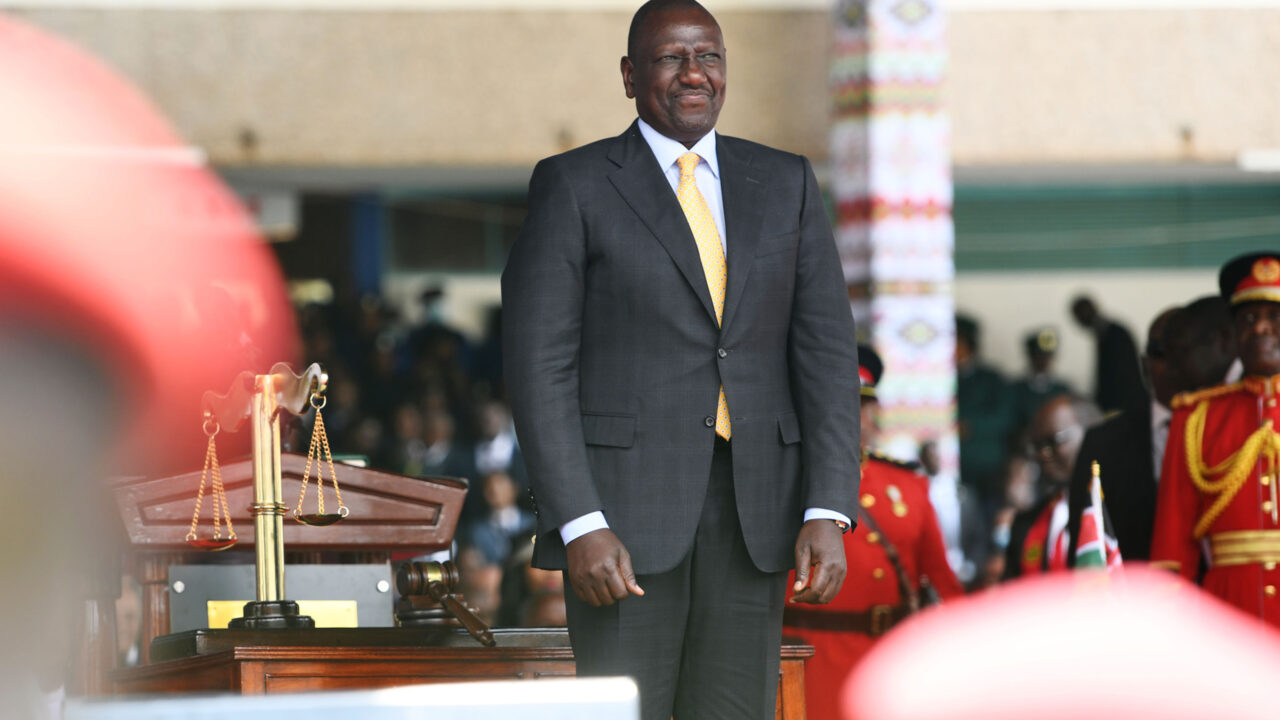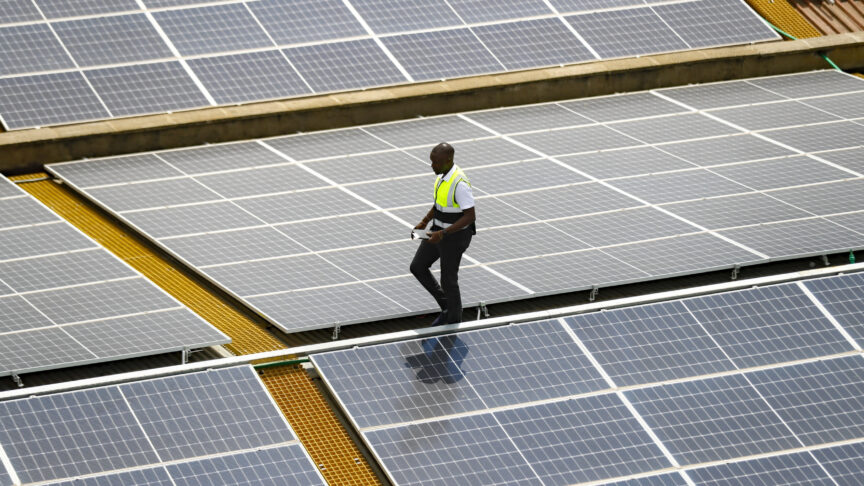What the Ruto government could mean for Kenya-Europe relations
“Kenya First” may sound Trumpian. But if the new president can deliver on his promise to strengthen governance in the country, Kenya could prove an even more valuable partner for Europe
In August, Kenyans narrowly elected William Ruto as their fifth president. Ruto stood on a platform of “Kenya Kwanza” – “Kenya First.” The challenges facing the country’s new leader are significant: corruption is rampant; the covid-19 pandemic has pushed up unemployment; and the cost of living has become unsustainable for most citizens. But what does “Kenya First” mean? And what does Ruto’s arrival in office mean for Kenya’s relationships within Africa and with Europe?
It is worth noting that even the nature of his win – or, rather, its immediate aftermath – may have helped strengthen Kenyan democracy and society. The defeated opposition leader, former prime minister Raila Odinga, challenged the result in the supreme court, but lost. Yet he accepted its decision. This stands in stark contrast to events during and following the 2017 poll, which was marred by significant violence. In terms of Kenya’s place in east Africa and as a partner for Europe, a resilient democracy can enable it to act as a regional player. Indeed – and in contrast with “America First” – the Kenya First manifesto places great emphasis on good governance: upholding the constitution, strengthening the judiciary, and prioritising the people’s needs over the personal interests of the elite.
Ruto appears set to pursue an interests-based foreign policy, particularly on national borrowing and development opportunities, although the new administration has also been quick to express a wish to strengthen relationships with Kenya’s international partners. Retaining Kenya’s role as an “anchor state” was a pledge the new president explicitly made during the campaign – that is, maintaining the considerable influence, particularly within the East Africa Community and African Union, that Kenya has long been able to exert. In this respect, enhanced stability at home could assist the new administration to tackle regional security challenges, such as border disputes with Somalia and the nature of the interventions of the African Union in Somalia (AMISOM). As deputy president, Ruto supported Kenya’s contribution as a key partner of the AMISOM, backing investment in the peacekeeping mission. On security within Kenya, meanwhile, Ruto has pledged to continue working closely with the European Union on countering violent extremism.
Kenyans have long expressed concern about the nature of the previous government’s dealings with China
In addition, he has promised to pursue “economic and commercial” diplomacy, aiming to support the economic needs of Kenyans while negotiating with international partners, and providing a stable political environment that encourages foreign investment. The high cost of living in the country is partly due to the considerable revenue that goes on servicing the country’s debt. As Kenya’s biggest export market, the EU can work with the new administration to promote fair trade and investments in east Africa. As part of its bottom-up economy approach, the new government has committed to investing in agriculture and the informal sector in Kenya: the majority of the population works in this sector or in other low-wage jobs. The EU therefore has a fresh opportunity to identify ways to invest in job creation and support tax revenue to strengthen the government’s balance sheet.
On the key issue of China and its relationship with states in the region, Kenyans have long expressed concern about the nature of the previous government’s dealings with the country. For example, in December 2014, President Uhuru Kenyatta contracted the China Road and Bridge Corporation (CRBC) to undertake community infrastructure projects. A landmark ruling by the high court earlier this year made this agreement public. Throughout his campaign, Ruto committed to make all contracts between Kenya and China public. If Ruto follows through with this, it could shift the dynamics in the relationship between China and the West in Kenya, providing an opportunity for the EU to focus on investing in underfunded sectors. This would reduce duplication in development efforts, thereby increasing investments from international partners.
The EU should support the Kenyan government in implementing these new, ambitious plans. The administration must address the deep governance and social cohesion issues present in the country, in pursuit of national unity and development. The EU can also assist the evolution of Kenya’s democracy by supporting a strong opposition that is able to hold the new administration to account and ensure it delivers on its commitments.
Wevyn Muganda is part of ECFR’s Africa researchers network and the founder of Isirika, a grassroots youth-led network. She also works with the Global Network of Women Peacebuilders and as Youth Advisor at Generation Unlimited.
The European Council on Foreign Relations does not take collective positions. ECFR publications only represent the views of their individual authors.



